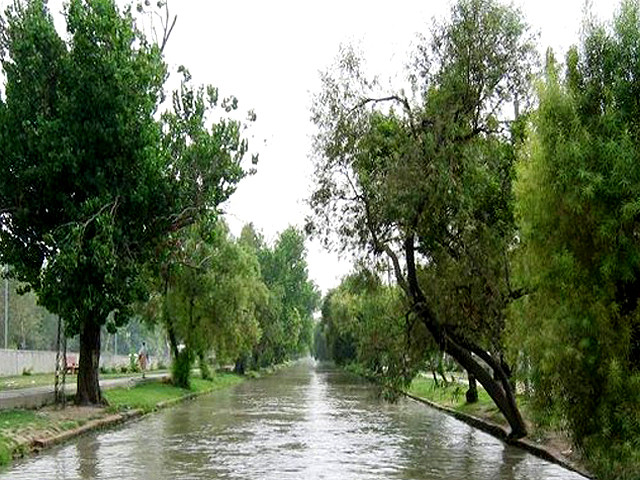Environment Day seminar: More trees planted on irrigated land
Economy could lose Rs2.3b per year from deforestation.

Environment Day seminar: More trees planted on irrigated land
The government is planting trees on irrigated land to compensate for the loss of forests in Pakistan, but the rate of deforestation needs to be slowed or the country will pay a heavy environmental and economic price, said speakers at a seminar to mark World Environment Day organised by the Pakistan Engineering Congress (PEC) here on Thursday.
The number of trees on irrigated land stood at an average of three per acre in 1947. It is now at an average of 17 per acre and should be up to 43 per acre by 2018, said Dr Abdul Aleem Chaudhry, former chief conservator at the Forests Department.
He said that tree plantation on greenbelts, farms and irrigated land was a good way of making up for deforestation in the northern and coastal regions of Pakistan, as well as minimising soil erosion and damage caused by floods.
But Dr Chaudhry warned that if the cutting of trees continued, in a few years Pakistan’s economy stood to lose Rs2.3 billion a year from loss of forests. He noted that in 2011 so far, 1.6 mega tonnes more carbon monoxide had bee released into the air worldwide than in 2009.
He said forests covered a small percentage of the country’s territory – about 4.8 per cent according to the government, about 2.5 per cent according to the United Nations – compared to Scandinavian countries, which had forest cover of up to 65 per cent.
Deforestation also affected water levels and wildlife, Dr Chaudhry said. Animals that lived in a forest habitat at altitudes of 3,000 to 5,000 feet had been forced to move up to 7,000 feet in search of forests and this would likely result in their extinction, he said.
He said infrastructural changes, responsible policy, community empowerment and better disaster preparedness could curb the rate of deforestation by 20 per cent.
Earlier, PEC president Husnain Ahmed gave the inauguration speech at the seminar, citing references to forests in the Holy Quran and in poems by Robert Frost and Ibrahim Zouq. He said forests were pivotal to the socio-economic development of a country and discussed the effects of deforestation on several regions. Ahmed said only about 3 per cent of Pakistan was covered by forests, which was way short of the recommended minimum cover of 25 per cent. To redress this, he suggested that Pakistan follow the examples of China and Malaysia. The former planted 35 million saplings on 4,500 acres in a year alone, he said. Malaysia empowered communities living near mangrove forests on its coast to take measures against soil erosion.
Raja Ataullah Khan, a former natural resources management specialist at the Forests Department, spoke about forestation in the Thal desert to stop soil erosion. He said that trees had been planted on 4,404 acres in Khushab, Layyah and Bhakkar in the last three years. He said they had also helped reduce water logging and formation of sand dunes in the area.
Published in The Express Tribune, June 17th, 2011.


















COMMENTS
Comments are moderated and generally will be posted if they are on-topic and not abusive.
For more information, please see our Comments FAQ